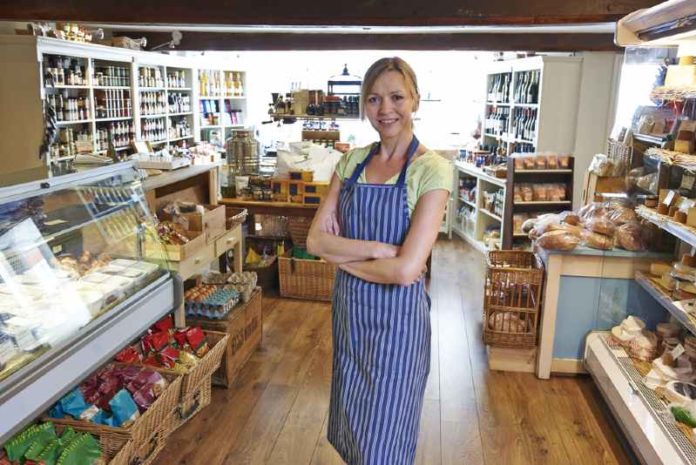Starting and growing a small business isn’t cheap, but Main Street can make it more affordable. Through revolving loan programs, grants, matching funds and other initiatives, Main Street organizations find valuable ways to invest in their local businesses. These funding sources fill gaps that financial institutions often miss and keep money circulating in the local economy. With Main Street money, small businesses can invest in property, recover from a disaster or bring a new idea to the community.
1. Buy a Commercial Property
Commercial rents have been on the rise for years, and large-scale, policy-based solutions have offered little to no progress for small businesses in competitive markets with unfavorable leases. One way to avoid rising commercial rents is to buy property. The Georgia Department of Community Affairs administers a revolving loan fund designed to encourage downtown revitalization and investment. Businesses can ask their municipality or local development authority, such as Valdosta Main Street, to apply for a loan of up to $250,000, which can then be used to purchase downtown real estate or fund new construction.
2. Renovate an Existing Property
Small businesses that already have a suitable commercial space can renovate or refurbish that space to better meet their business’s needs. Some of these programs seek to preserve the community’s historic character through façade renovation, while others allow business owners to alter the interior of their spaces. Some Main Street programs use revolving loan funds for this type of work, while others offer grants.
In Indiana, Seymour Main Street administers a Façade, Awning and Signage Grant Program, which provides grants to building owners or commercial tenants in the downtown district for very specific purposes. The program provides matching funds up to $5,000 (for a $10,000 project) for façade or alleyway renovations, up to $1,000 for a new awning and up to $500 for signage.
Meanwhile, Mitchell Main Street in South Dakota maintains a revolving loan fund for historic preservation in downtown. The program finances renovation projects by local businesses and property owners to make visible improvements to downtown buildings and maintain the historic character of the community. Mitchell Main Street has provided more than $210,000 in loans through this program.
3. Rebuild After a Natural Disaster
When disaster strikes, Main Street groups can help small businesses get back on their feet. Many Main Street programs provide dedicated funding opportunities in the wake of natural disasters, and some groups allow their existing loan programs to be used for such recovery activities. Either way, these funds help steady the local economy after a natural disaster by investing in local businesses.
In Washington, Port Townsend Main Street offers Light at the End of the Tunnel (LENT) microloans to small businesses. LENT loans can be used to offset the financial impacts of an emergency. Priority under the program is given to small businesses that have suffered from a natural disaster or infrastructure failure.
4. Crowdfund a New Idea
Main Street groups don’t just connect small businesses to their money; they also provide opportunities for small businesses to access capital from other local stakeholders. For example, The Local Crowd Monadnock launched a crowdfunding platform to connect businesses in its New Hampshire community with funding from residents. Through the crowdfunding platform, small businesses can create a campaign that describes their proposed project and sets a goal for investment. Then, residents and fellow businesses can use the crowdfunding platform to donate money to the campaign. With crowdfunding, Main Street organizations introduce small businesses to a wider audience of donors and investors.
5. Host a Community Event
Community events are a popular way to bring people downtown. Residents and visitors come to Main Street for holiday parades, seasonal festivals and weekly farmers markets. Main Street programs often host these events, but Main Street Dodge City in Kansas takes a unique approach. In addition to its annual events, Main Street Dodge City provides grants for small businesses and groups of residents to host their own community events. Grants of up to $500 are available, and events must welcome a diverse audience, take place in the downtown district and meet other criteria.
Bottom line: where there is a will to succeed on Main Street, there is a way. Take advantage of existing programs and think outside the box for existing funding opportunities that help strengthen both your small business and Main Street as a whole.
Bill Brunelle is co-founder of Independent We Stand, a cause-marketing campaign sponsored by STIHL, Do it Best Corp., PPG Paints and Nationwide Marketing Group, which is dedicated to educating communities about the importance and strong economic benefits of supporting locally owned businesses. Independent We Stand inspires small business owners across the country to celebrate their locally owned status and help consumers understand the importance of supporting them. For more information, visit www.independentwestand.org. @IndWeStand, on Facebook, on YouTube.
Small business stock photo by SpeedKingz/Shutterstock







